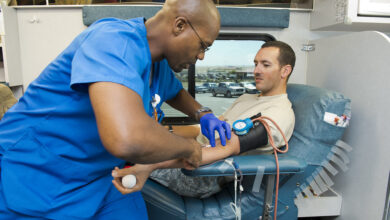The Role Pain Management Doctors Play in Recovery from Surgery

It can be challenging to recuperate from surgery, but it is crucial to control your pain in order to return to your regular schedule and experience the joys of life once more. That’s where pain management doctors come in – they’re key players in helping you through the recovery process.
What is Pain Management?
At its core, pain management is all about caring for people who are dealing with discomfort. The aim is to enhance your well-being and elevate your quality of life.
To achieve these goals, the field of pain management relies on experts from various disciplines, including doctors, nurses, and therapists. Together, they work as a team to assess your needs and create a personalized treatment plan just for you.
The Role of Pain Management Doctors in Post-Surgical Recovery
Assessing and Evaluating Pain
Pain physicians begin by extensively familiarizing themselves with their patient’s pain levels and identifying its root cause when addressing pain management. This involves a detailed investigation of the patient’s medical background, any prior surgeries they have undergone, and potential complications that may be contributing to their discomfort.
Developing a Personalized Pain Management Plan
After assessing the patient’s pain, pain management doctors work with the surgical team to develop a personalized pain management plan. According to pain management clinic KindlyMD, this plan takes into account the patient’s medical history, type of surgery, and specific pain concerns. The goal is to create a comprehensive strategy that addresses the patient’s pain while minimizing the risk of complications or side effects.
Administering Pain Relief Techniques
Pain management doctors employ a range of pain relief techniques, from medication to non-pharmacological interventions. These may include:
- Analgesic medications, such as opioids, nonsteroidal anti-inflammatory drugs (NSAIDs), and acetaminophen
- Regional anesthesia techniques, such as nerve blocks or epidural anesthesia
- Non-pharmacological interventions, such as ice, heat, massage, and relaxation techniques
Monitoring and Adjusting the Pain Management Plan
Throughout the recovery process, pain management doctors closely monitor the patient’s pain levels and response to treatment. They adjust the pain management plan as needed to ensure the patient’s comfort and safety while promoting optimal healing.
The Importance of Effective Pain Management
Effective pain management plays a critical role in a patient’s recovery from surgery. It helps:
- Enhance Comfort and Well-being: Proper pain management allows patients to rest more comfortably, improving their overall well-being and making the recovery process more manageable.
- Promote Healing: Uncontrolled pain can slow the healing process, as it may cause stress, inflammation, and impaired immune function. Effective pain management helps promote healing by reducing these negative effects.
- Improve Mobility and Function: Pain can limit a patient’s ability to move and engage in activities essential for recovery, such as walking or physical therapy. Pain management helps patients regain their mobility and function, speeding up the recovery process.
- Prevent Chronic Pain: Poorly managed acute pain can develop into chronic pain, which is more difficult to treat and can significantly impact a person’s quality of life. Effective pain management helps prevent this transition by addressing pain early and comprehensively.
Conclusion
Pain management doctors play an essential role in the recovery process following surgery. Their expertise in assessing and evaluating pain, developing personalized pain management plans, administering pain relief techniques, and monitoring patient progress ensures a comfortable and safe recovery.
Effectively managing pain means they help promote healing, improve mobility and function, enhance patient comfort and well-being, and prevent the development of chronic pain. So if you or someone you love are facing a surgical procedure, it’s important to talk about pain management options with your healthcare team.






